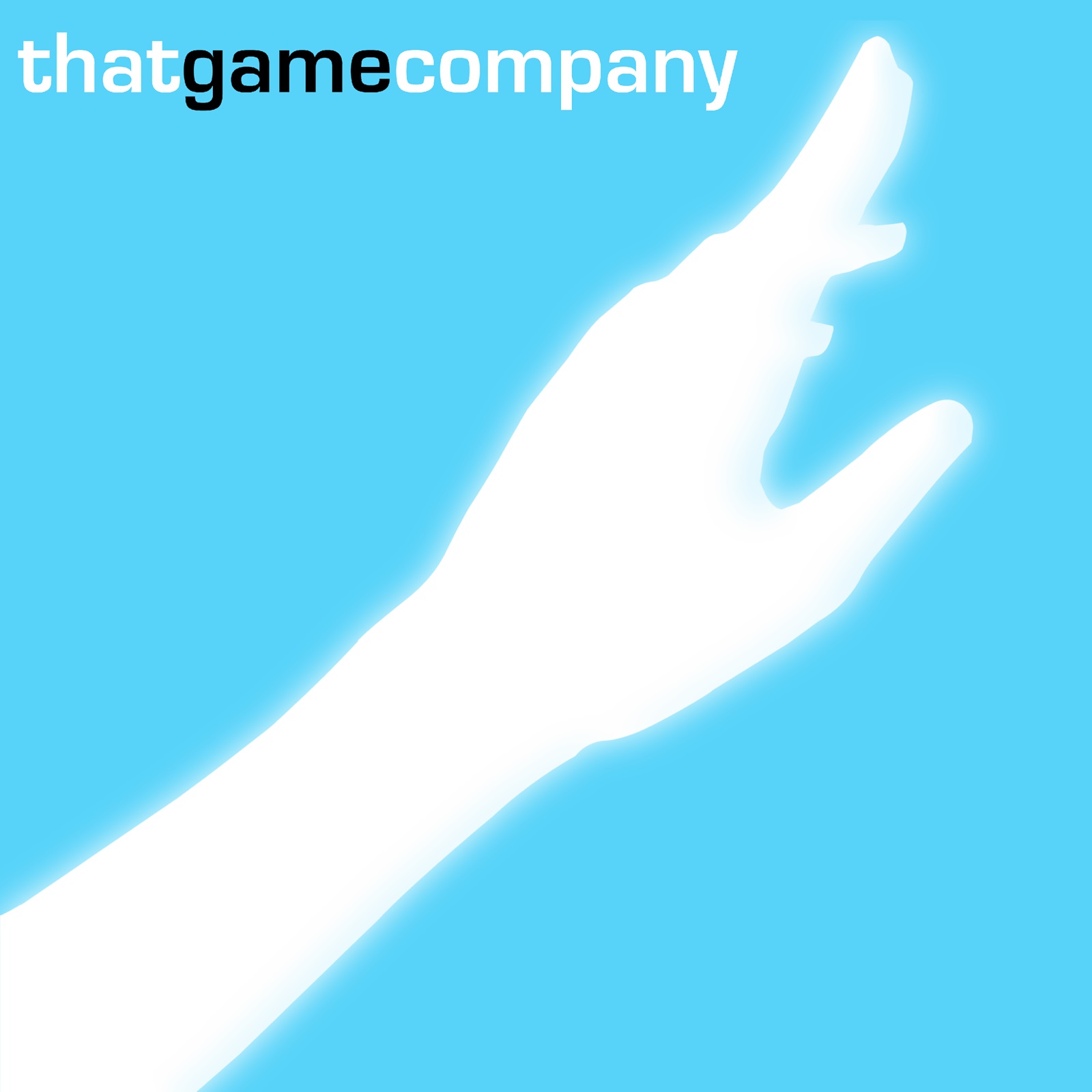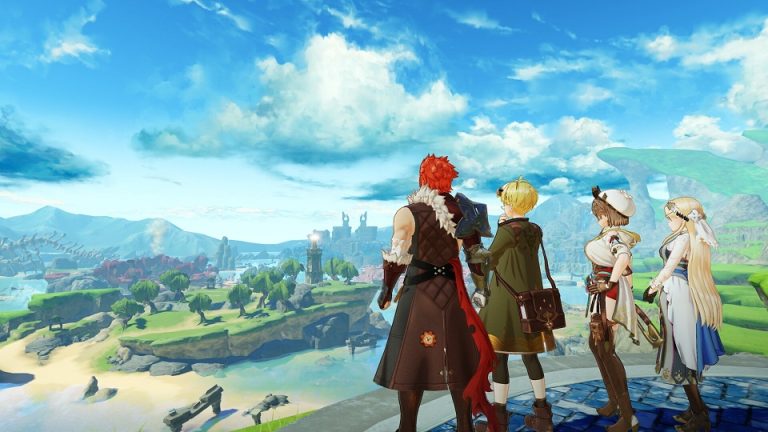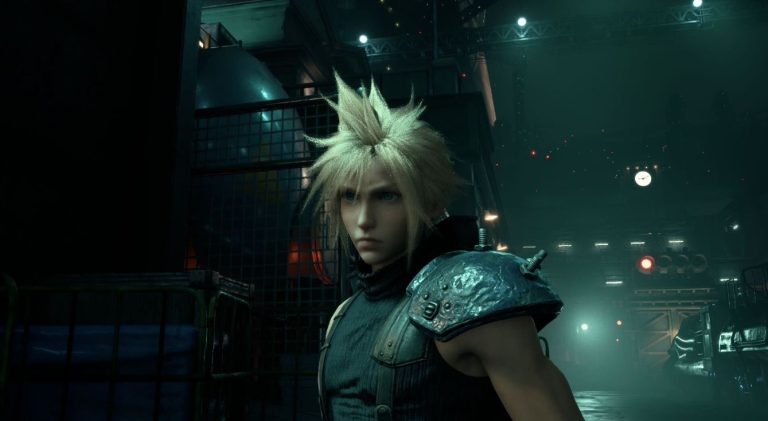Publication date of the original Japanese article: 2020-03-06 18:00 (JST)
Translated by. Braden Noyes
American indie game developer thatgamecompany is at the forefront of creativity, having released beautiful, original games such as Flower, Journey, and Sky: Children of the Light. And at this accredited studio, a Japanese developer works as their lead audio designer.
His name is Ritsu Mizutani. He began his career as a sound designer at Square Enix until he picked up and moved to the United States in order to join the team at thatgamecompany as the lead audio designer for their latest title, Sky: Children of the Light.
We were given the chance to sit down with Mr. Mizutani and ask him about his dedication toward making such a beautiful soundtrack for Sky: Children of the Light, the motivations behind his career decision to move to the United States, and what it’s like to work for an indie studio at the forefront of innovation.
*Please note, this interview was conducted at the beginning of 2020 before the Coronavirus pandemic began.
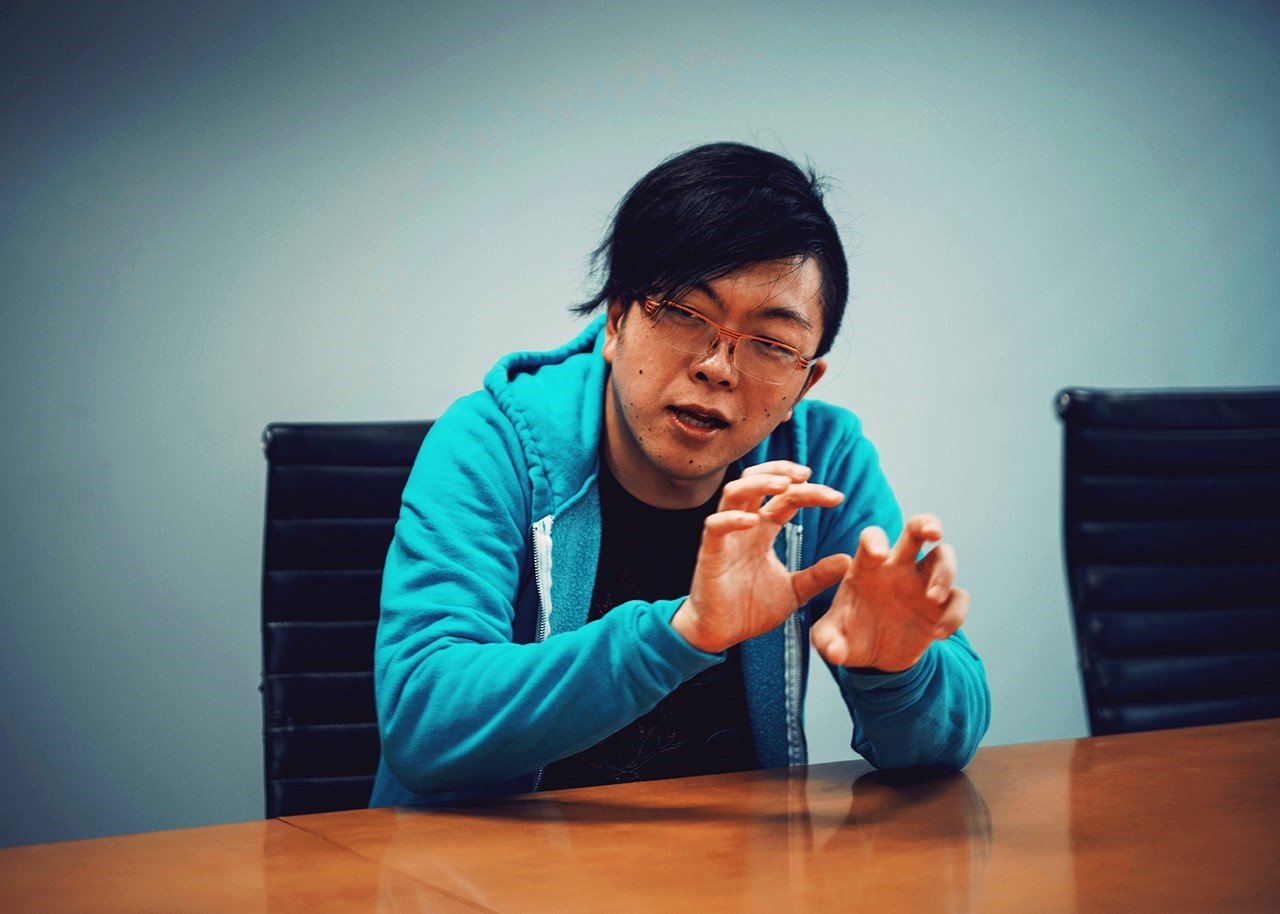
Would you please introduce yourself?
Mr. Mizutani:
My name is Ritsu Mizutani and I work as the lead audio designer at thatgamecompany. I’ve been working in the field of game audio for over 15 years now and I’ll be entering my 5th year in the United States here soon.
Last year, I worked on the musical composition for Mirror Drop, an indie title created by an individual developer. Sky: Children of the Light is the second project I’ve been a part of since moving here. While I was in Japan, I was in charge of sound direction for projects such as Final Fantasy XI, Dragon Quest X, and Dragon Quest: Builders.
It sounds like your career was going rather well. What made you decide to move to the United States?
Mr. Mizutani:
It was all because I wanted to work for thatgamecompany. Playing Flower and Journey left quite a big impression on me. They both managed to tell stories of human life and rebirth through experience alone, without the need to use a single word. It was something I never realized could be done. I was impressed, of course, but more than that I got a little upset at just how beautiful they were.
It’s the same with games of any genre. For some reason, when I come across masterpieces such as these, I occasionally become so emotionally moved that I also get angry. I think what I’m actually getting upset about is my own lack of ability and the bad luck that kept me from being part of the team that created such an amazing work of art. It gave me the strong feeling that I’d regret not being part of their future projects, so I was just waiting for an audio design position to become available. I don’t think it mattered where thatgamecompany was based, either. Whether it was Germany, India, or Osaka, I think I would have wanted to go regardless.
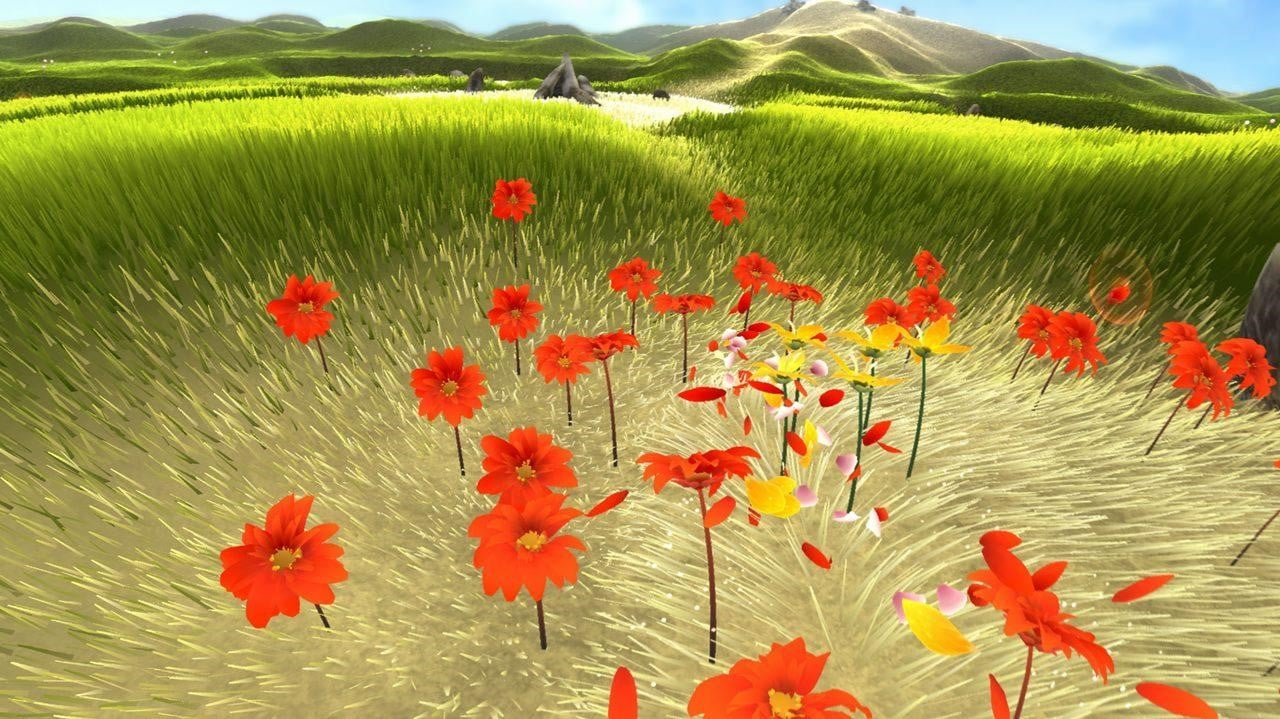
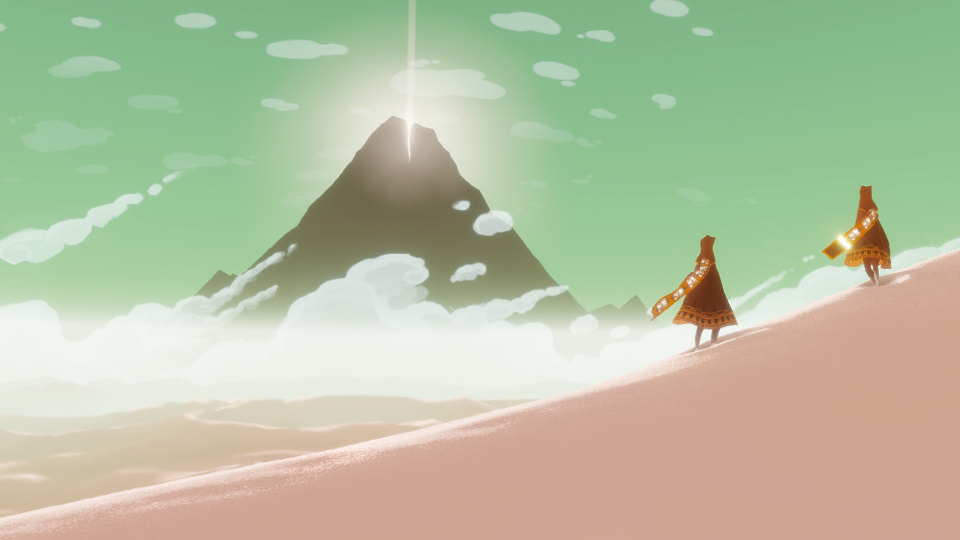
Could you tell us a little about how your move to the United States went?
Mr. Mizutani:
I obtained what’s called an O-1 visa to move to the United States. The review process for going to the U.S. is very long, and I remember being restless for quite some time. I remember also being asked to submit a letter of recommendation from my boss and mentor at the time. It was probably the most awkward thing I’ll ever have to do.
I guess it’s a normal thing in the U.S., but I’ve been working for Japanese companies my entire life. I mean, what kind of nerves of steel are required to go up to your boss and say, “Hey, I’d like to quit and get a job at another company in the same field. Would you write me a letter of recommendation? Oh, but we can just forget the whole thing if I end up not getting the position.” I ended up asking in the end, though. Haha. I’m still extremely grateful to my boss for looking at me and simply replying, “Oh, sure thing.” Thinking about what was going through my boss’s head at the time gives me butterflies even now. I feel really blessed to have been surrounded by such great people.
After arriving, I was faced with doing all the things necessary to set up a new life such as renting an apartment, setting up utilities and cell phone service, and even getting a driver’s license in English. I remember relying heavily on online blogs written by people who had gone through the processes before me. It was really difficult, but I started thinking of it as a kind of quest I had to overcome.
There aren’t very many precedents for people moving to the United States to work for an indie studio, are there?
Mr. Mizutani:
Yeah, I suppose that’s because this career path has too many uncertainties. Haha.
Haha. How long did it take from the time you decided to join thatgamecompany until you actually started?
Mr. Mizutani:
About a year and a half.
Which part of the process required the most time?
Mr. Mizutani:
Getting the visa, for sure. After applying for the job, I did interviews via voice chat, then went in person to the company in Santa Monica for the final interview. All that took about half a year. Then I was forced to wait another year. I was essentially put on hold while I waited for the visa process to be completed. I still find it amazing they waited an entire year for me after actually hiring me.
Were you already proficient in English before you moved?
Mr. Mizutani:
I could read and write to a certain extent, but my speaking and listening skills weren’t good enough to be of any real use for basic, everyday conversation. For the first six months or so after moving here, my brain was so exhausted by the time I got home at night that I could barely think.
Most people assume that conversational English is easier than business-level English, but I personally think daily conversation is much more difficult. It’s hard to understand people over the phone. Joining in conversations during lunch was difficult. I’d find it hard to keep conversations going when getting introduced to new people.
Everything was a constant source of stress. I wouldn’t recommend someone in their late 30s like me pick up and move to a brand new environment that requires learning a new language unless they are very serious about it. I’m extremely grateful to my wife for sticking with me through the entire thing as well.
Did you prepare at all before your move?
Mr. Mizutani:
A little, yes. There was a group at my previous company who would practice English conversation, so I started joining their meetings. I even had a private tutor come over on the weekends. I tried to study for at least an hour every day, so I probably studied about 365 hours that year.
After actually moving here, though, I realized that it was nowhere near enough. Haha. Apparently it takes around 3,000 hours of studying to become proficient in English. I’m still studying even now.
I was actually surprised at how fluent you sound. Was there anything else you put so much effort into while preparing to move to the U.S.?
Mr. Mizutani:
This probably isn’t the normal response, but I was worried about my pet. I’d had a pet for a long time and I just kind of assumed I’d be taking it with me, but apparently it’s a species they don’t allow you to bring into the country. I made sure to set aside plenty of time to fly him back to my parent’s house to make sure he’d have a nice home. Haha.
I was expecting you to answer with something along the lines of saving up enough money.
Mr. Mizutani:
Saving money is important as well. It was necessary to have a car, so I had to buy one. Between that and the money I had to pay when renting a house, my savings disappeared.
Haha. On that topic, what was the hardest part about setting up your new life?
Mr. Mizutani:
In the U.S., they have this thing called a social security number. It’s similar to the My Number system in Japan and is used for things like keeping track of tax payment records. Without one, you can’t do things like rent a house, open a bank account, or get a driver’s license. It was necessary to plan carefully so I’d be able to get one right away. You can’t go through the process from Japan, so I had to be ready. I was really lucky to have support from the company in getting one set up.
I also mentioned it earlier, but getting the visa itself was also extremely difficult. And even though I have one now, I still have to worry about being able to renew it. It’s a constant source of anxiety while living here.
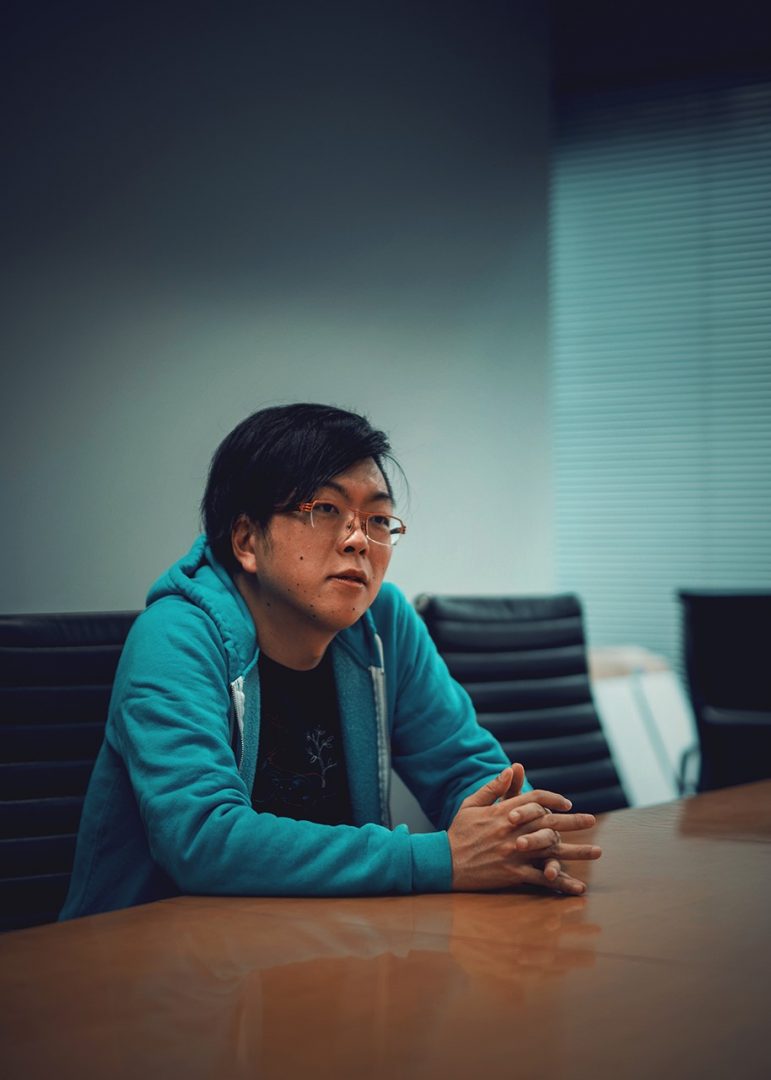
You mentioned anxiety. Have you ever felt in danger while living in the U.S.?
Mr. Mizutani:
I honestly can’t think of a time I felt in danger. I think I’ve been very lucky to not have been involved in any sort of incident or had any trouble. However, there are wildfires in the Los Angeles areas about as often as Japan sees typhoons. And when they happen, they can last for weeks at a time and often cause damage to the city. The weather gets really bad and ash will pile up on the cars. One came within about 10 km of where I was living. If it had come any closer, we would have been forced to evacuate.
How is the safety in Santa Monica?
Mr. Mizutani:
I think it’s actually quite safe in Santa Monica. Going back to your question about what I did to prepare for moving here, I could add that I did a lot of research on which areas were the most dangerous. I say Santa Monica, but there are actually many smaller areas within it. Area might not even be the right word for it either, as a lot of the locations are as small as a few city blocks. Some areas around the city can feel completely different just by crossing a street.
The dangerous places can be fascinating in their own way too, like the ones that feel charged with energy where the young people gather. Still, California is a diverse place filled with people from all over the world, so I’ve never experienced any sort of racial discrimination.
You mentioned language being a barrier in getting to know the other staff members at your company. How did you end up getting closer with them?
Mr. Mizutani:
I’ve never been particularly great at communication to begin with. I think the same is true even now, so I’m not sure if I’ve exactly gotten close with anyone yet. Haha. One thing I can say, however, is that lunchtime is very important. I think it’s common for busy people in Japan to often eat while they work or while they’re moving from one job to the next. However, the U.S. treats lunch as very important. Here, it’s not common for people to eat at their desks even when they’re extremely busy. Instead, they all gather and eat together as a way to rejuvenate themselves.
I’ve also noticed that it’s not very good manners to talk about anything work-related during lunch. Instead, the conversations are more about what you did over the weekend, how your recent trip was, or other general topics. I think everyone is deliberately trying to help each other get their mind off work to recharge.
So when I first started working here, I still joined everyone for lunch even though I didn’t really understand the language. It was a way to learn what sorts of things everyone talks about and I think it really helped with my communication skills.
I thought you might have tried breaking the ice by asking the others to play UNO or something.
Mr. Mizutani:
There are people like that at work. Haha. I’m not one of them, though.
Would you please tell us something else you’ve learned that you like about American companies since moving?
Mr. Mizutani:
It’s kind of related to what I mentioned before, but they value family and their personal lives a lot. Even during the busiest of times, there is a clear separation of work and home life. Instead of a “I’ll finish this even if I have to work overtime” mentality, they are more firmly rooted in a “I need to better manage the amount of work I get done in order to avoid working overtime” way of thinking.
This leads to an extremely high level of concentration while at work, then suddenly everyone is out the door and on their way home at the same time every day. I found it really hard to escape my old ways of thinking, so there was a bit of culture shock at first. I kind of got upset seeing everybody so eager to leave on time, but before I realized it, that feeling had disappeared—just like my coworkers when the clock hits 5! Haha!
Having worked in Japan for so long, I’ll bet it was difficult to get used to such a different work culture. Have you found a way to adapt?
Mr. Mizutani:
That’s a difficult question. I think it’s probably better to look at it as a different generation’s way of doing things as opposed to a difference in culture. I kind of get the feeling my ways are just stuck in the past.
Am I developing products as an employee, or am I making art as a creator? I used to think that in the latter case, I should devote everything I had to my art even at the expense of my own personal quality of life. Now, however, I’m trying to correct that way of thinking. Yes, there are some cultural differences, but if you really think about it, it’s probably more of a generational gap.
That’s quite an interesting perspective. Thank you. What about the reverse, then? Are there any things about Japanese companies that you’ve come to think of as better since moving to the U.S.?
Mr. Mizutani:
I think it changes a little with time, but when I started working in this field, I received a substantial amount of quality on-the-job training. I’ve always loved music and games, but it’s not like I had any formalized education on the subject. Despite this, I believe I was able to work my way into the industry thanks to the systems companies have in place to train employees after they are hired, as well as the generosity of the recruiters willing to give eccentric people like me a shot.
The U.S. has more of a merit-based hiring system where companies want someone who already has experience and is ready to get straight to work, even if they are fresh out of college. I don’t think I would have been given the same chance here as I was in Japan. It makes sense logically, but I feel like it limits a company’s chances of finding gems in places they weren’t expecting.
Has your love of thatgamecompany changed at all now that you’re here?
Mr. Mizutani:
I’m not sure ‘love’ is exactly the right way to put it. Haha. What kinds of standards and ways of thinking drive people to do what they do? What sort of workflow does a team have in place to allow them to work as a cohesive unit? These are the questions that fascinated me, and why I dove right in. The more I work alongside everyone at the company, the more I learn to like them. But my interest has always been in the people.
Things are always changing so drastically, though. To me, thatgamecompany is like an amoeba, flexible and fluid without any hard-defined borders.
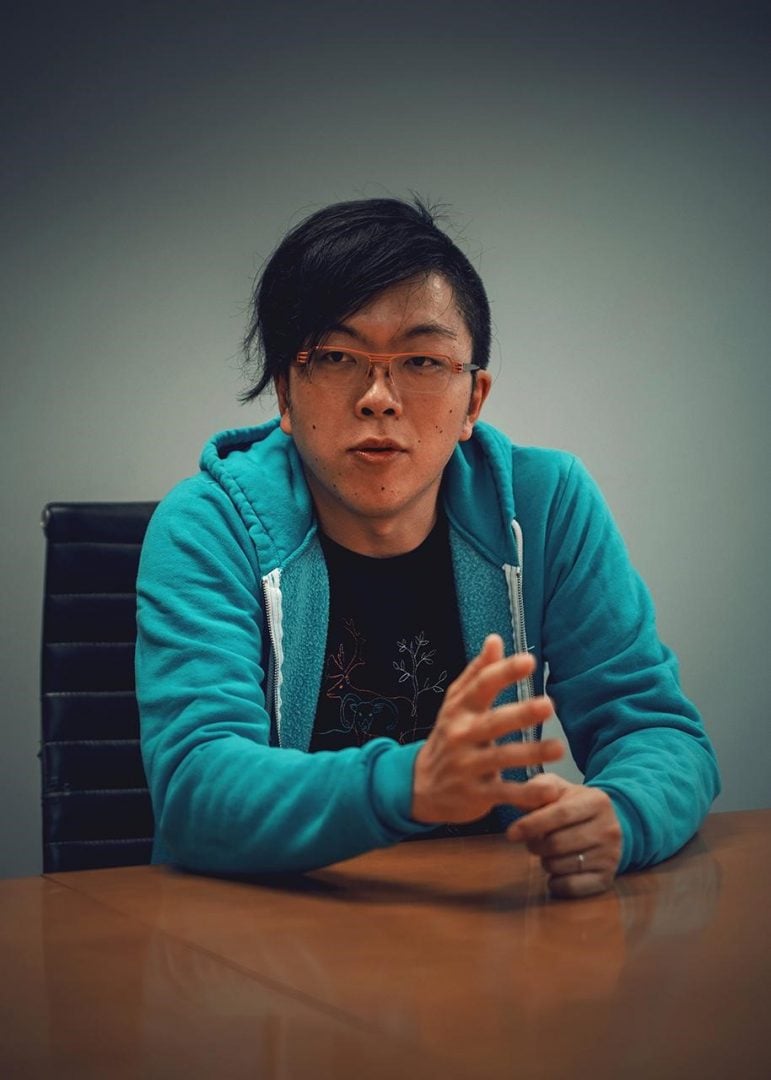
An amoeba? That sounds a bit philosophical. How did you first become interested in games?
Mr. Mizutani:
My parents were very strict when it came to games, so even though I liked them, I wasn’t really allowed to play them. That only made me want to play them more, though I was limited to making up games in my notebooks or going over to my friends’ houses to watch them play.
The rules at home were relaxed a bit and I was allowed to play after entering junior high school, but by then my interests had shifted to music. My gaming experience pretty much extended to the original Beatmania and making music in games like Mario Paint, Dezaemon, and DEPTH, though I did get really obsessed with a couple genres of games in the arcades—bullet hell and vertically scrolling shooters! I never really played games at home in the past, but I’ve started doing so now that I work in the field.
Considering the fact that you decided to join thatgamecompany, I’m assuming you enjoy Western games as well. What were your so-called gateway games?
Mr. Mizutani:
I would have to say Wipeout XL and Wipeout 3 were some of my first Western games. I really liked techno music like the kind from Warp Records, and I was a big fan of The Designers Republic who was in charge of the games’ design. They both added a special aesthetic to the game. Controlling your ship as you maneuvered around the tracks was really exciting, too. A while back, I had the urge to see them again, so I looked up some videos online. Seeing and hearing the opening cinematics, the incredibly inorganic-looking title screen, and the UIs made me remember just how great those games were!
Are there any recent games that have left an impression on you?
Mr. Mizutani:
In terms of strong impressions, as well as the feelings of annoyance I mentioned earlier, a few that come to mind are Tetris Effect, What Remains of Edith Finch, and Inside. Tetris Effect did an incredible job joining sounds and visuals together. The wide range of ideas they added to the game made me feel like I’d been shown up.
They were great. If you want to know my five all-time favorites, they would be Tetris for the Game Boy, the first Starfox, Mystery Dungeon: Shiren the Wanderer, Wipeout 3, and Rez. It’s not easy choosing favorites, though. I really do love games, but I haven’t had any time to play since Sky: Children of the Light entered the later stages of development. Once I have the time, though, I’d like to get back to playing.
Your love for games really comes across in the way you speak about them. Which games are you most looking forward to at the moment?
Mr. Mizutani:
A studio called Playdead is currently developing a new science fiction game! It’s going to be their first game made in 3D, and I’m really looking forward to seeing what they will do with it.
I’m looking forward to that one as well. I wish it would come sooner.
Continue reading second half

